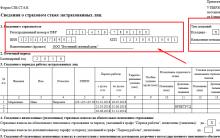The firm, as a rule, provides most of its functions either on its own or by hiring other organizations and individual entrepreneurs. But it happens that there is a need to attract a person “from the outside”, without hiring him– and then we are talking about a civil law contract.
Despite its apparent simplicity, it has its own subtleties and pitfalls. Let's see, the GPC agreement - what is it and where to get a sample?
Dear readers! Our articles talk about typical ways to resolve legal issues, but each case is unique.
If you want to know how to solve exactly your problem - contact through the online consultant on the right or call by phone free consultation:

Legislative regulation
The ability to conclude transactions for a contract or services is guaranteed to any resident of Russia by law (Article 421 of the Civil Code of the Russian Federation), and at the same time, he is not required to become a private entrepreneur.
Such relations are fully regulated by the Civil Code (hence the name). Or rather, chapters 39 and 73 of the Code. The law does not practically create no restrictions the formal part of the contract: both parties to the transaction must be capable, capable, voluntary, and the essence of the contract must be legal and not immoral.
Meanwhile, remuneration received under such an agreement is subject to taxation in the general manner.
Decoding and its differences from the employment contract
A civil law contract (GPC) is often understood as an alternative to an employment contract, which, by the way, is expressly prohibited by law. Special attention should be paid to the legal differences between these two types of relations.
The key difference is that the contract under the Labor Code of the Russian Federation has as its subject labor, the work of a hired person. The Civil Code Agreement, on the other hand, regulates only the result of labor. Other differences follow from this:

An example of a GPC contract form can be downloaded from the link.
Types of GPC
Based on the Civil Code of the Russian Federation, it is possible to determine the main types of a civil law contract:
- contract agreement (Chapter 37 of the Civil Code of the Russian Federation);
- contract for research (Chapter 38 of the Civil Code of the Russian Federation);
- service agreement (Chapter 39 of the Civil Code of the Russian Federation);
- contract for transportation (Chapter 40 of the Civil Code of the Russian Federation);
- transport expedition agreement (Chapter 41 of the Civil Code of the Russian Federation);
- mixed (Article 421 of the Civil Code of the Russian Federation), etc.

Most often, organizations are faced with a work contract and a contract for the provision of services. Treaties differ in the end result of the work, which can be both in tangible and intangible form or in the form of various services.
Also, the legislation allows you to order works and services of different types from one contractor. Then each new part of the contract will be regulated by the corresponding chapter of the Code.
Responsibility for the substitution of contracts
The state does not consider GPC contracts as an analogue of labor contracts, since they do not carry any social protection for a hired professional.
Therefore, the substitution of one contract for another is considered a violation and is punishable by law.
The punishment follows under the Code of Administrative Offenses Art. 5.27 part 3 in the form of a fine and amounts to an individual entrepreneur 5-10 thousand rubles, for officials 10-20, and for legal entities from 50 to 100 thousand rubles.
There are a number of "hooks" that regulatory authorities suggest that the GPC employment contract has been replaced. The FTS named them in letter of 2001 No. SF-6-07 / 463, they are as follows:
- assignment to the performer of the labor function;
- an indication of the position and qualifications in the contract;
- the continuing nature of the work instead of a one-time, quantitative and qualitative meters;
- subordination to internal regulations;
- wage guarantees;
- ensuring working conditions;
- business trips.
Taxation and insurance
By law, the employer is a tax agent for the contractor-individual, whose income under the contract is charged personal income tax at a rate of 13%. That is, it is included in the cost of the contract and is withheld upon payment, as in settlements with employees.
The Ministry of Finance of the Russian Federation explains that the parties are not entitled to agree on the independent payment of personal income tax by the contractor.
In the event that the GPC agreement is concluded with a private individual without an educated individual entrepreneur, a company or an entrepreneur have to pay taxes on it.
 The taxable base for personal income tax includes, in addition to payments under the contract, the amounts by which the customer reimburses the contractor's expenses, if such is specified in the contract, as well as the amount of the deposit and phased payments.
The taxable base for personal income tax includes, in addition to payments under the contract, the amounts by which the customer reimburses the contractor's expenses, if such is specified in the contract, as well as the amount of the deposit and phased payments.
The contractor has the right to receive a professional tax deduction for the amount of costs associated with the execution of the contract, documenting these costs. This includes "travel", providing a workplace and other expenses that the firm itself pays for staff members.
Also, the performer has the right to receive through a tax agent standard tax deductions. However, he will be able to receive a property tax deduction only upon his application to the tax authority, not directly from the tax agent.
It is important to remember that the execution of contracts of employment and services does not interrupt the insurance period of the contractor.
This is ensured by the payment of insurance premiums by the customer (212-FZ, Article 7) to the Pension Fund of the Russian Federation and the Compulsory Medical Insurance Fund. The only difference is that such payments are not subject to insurance to the Social Insurance Fund. In addition, contributions for injuries are paid only if it is agreed in advance in the contract.
Accounting of settlements on a civil law basis
The price of the GPC contract can be included in the costs of conventional foreign economic activity and other expenses in many more ways, about them below.
She is displayed on account credit 76 or 60 when the performer is not on the staff of the organization. If the contract is concluded with your own employee, the amount goes through K 70.
6 wiring options available employee remuneration depending on debit accounts:
- D 20 (23, 29) - works serve the main, auxiliary or service production. This is the main way;
- D 26 - work for the management of the company (analysis, audit);
- D 44 - work on the sale of products;
- D 08 - work creates non-current assets;
- D 10 (41) - work related to the accumulation of reserves;
- D 91-2 - "other" remuneration, for example, work to eliminate emergency situations.
In general, the postings will be approximately the following (depending on the selected accounts):
- D 20 K 76 - remuneration has been accrued;
- D 20 K 69 - insurance premiums are accrued;
- D 76 K 68 - income tax withheld;
- D 76 K 50/51 - remuneration paid;
- D 68 K 51 - income tax is transferred to the budget.
In which cases legal conclusion learn civil law contracts from the video:











How to issue a power of attorney to represent the interests of an LLC to an individual?
How to apply for an IP: step by step instructions
Form of power of attorney to receive goods or material assets
The deadline for registering an individual entrepreneur in the tax
Business plan for a law firm: an example with calculations legal support for a business